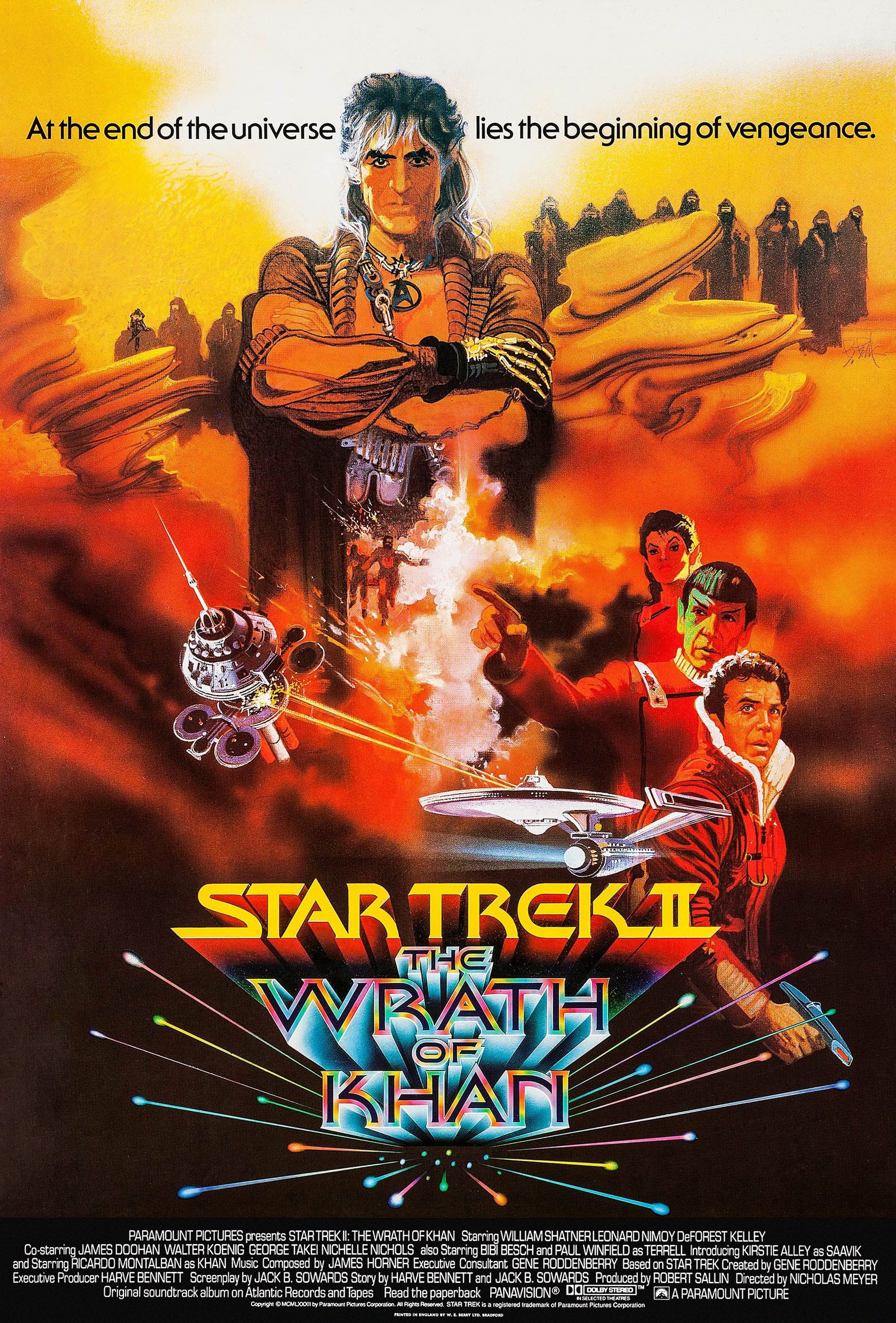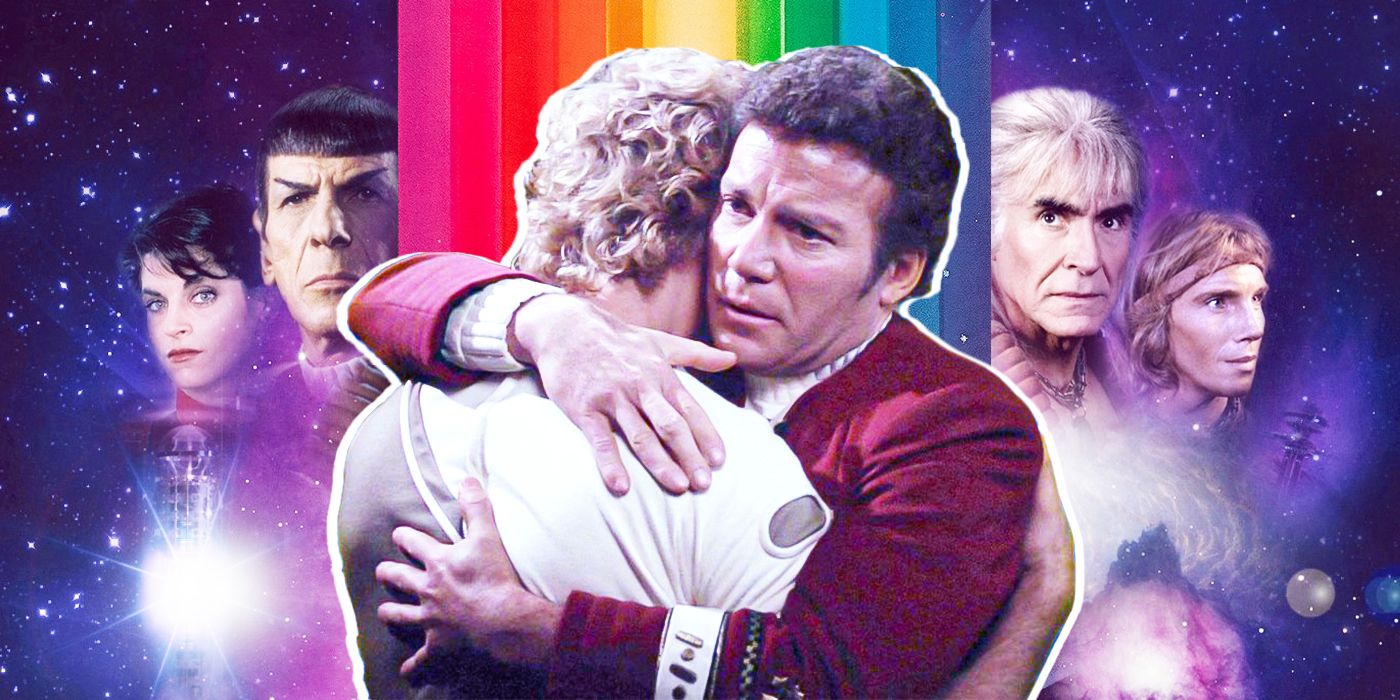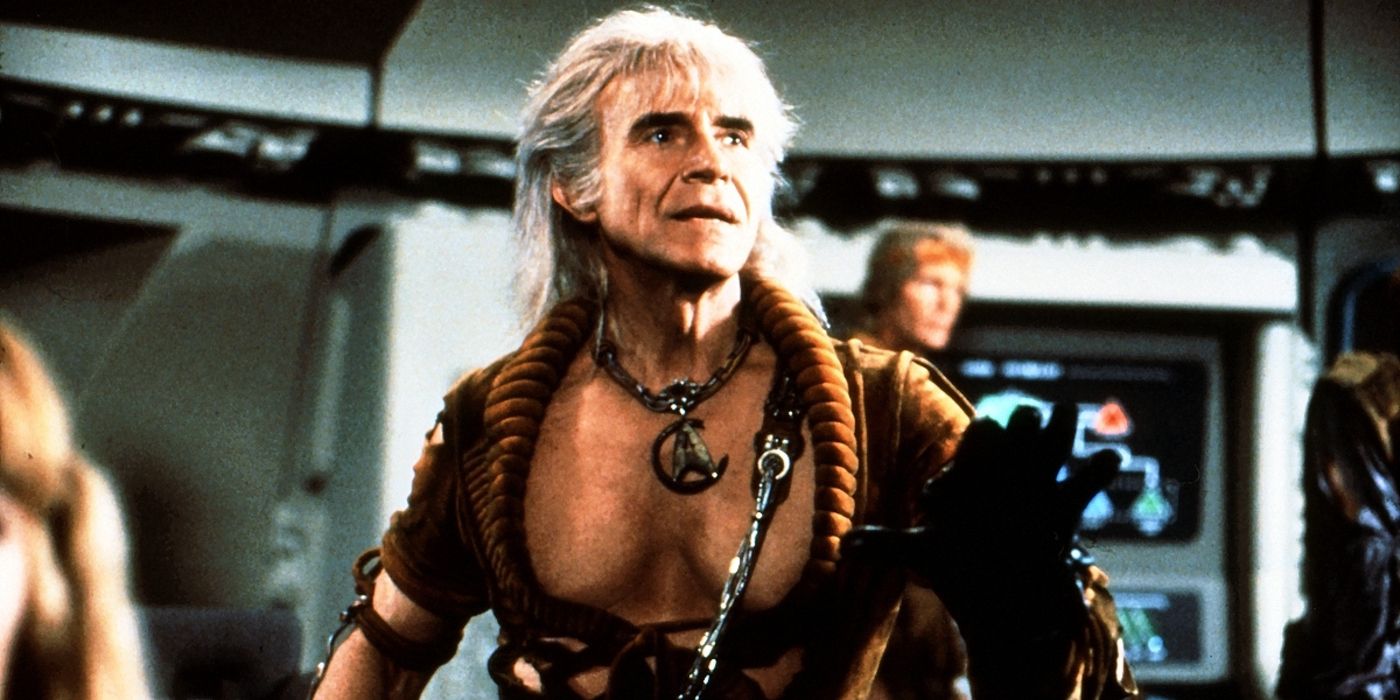The Big Picture
- The Wrath of Khan exemplifies the best of Star Trek with its perfect mix of action, suspense, emotion, and humor.
- The passing of time is the real villain of the film, as the Enterprise crew must reckon with their past to define their legacy.
- The death of Spock is a heartbreaking moment that represents the sacrifices made to preserve the future and deepens Kirk's humanity.
Star Trek II: The Wrath of Khan is the Citizen Kane of Trek films. Few Trekkies would argue that it is the best film in the entire franchise. While the saga has been uneven, The Wrath of Khan exemplifies the best of what Trek can be. It features just the right mix of action, suspense, emotion, and humor that made The Original Series so beloved in the first place. Of course, The Wrath of Khan is best known for its titular villain, played memorably by Ricardo Montalbán. However, the real villain of the 1982 sequel isn’t Khan himself. It’s the passing of time. The Wrath of Khan was released over a decade after The Original Series was taken off-air. The Enterprise crew had grown and evolved. Campy misadventures were a fun premise for a television show, but if Star Trek was to survive as a movie franchise, it needed to start taking itself more seriously.
1979’s Star Trek: The Motion Picture didn’t acknowledge the jump forward in the timeline. By the end of the film, Kirk (William Shatner), Spock (Leonard Nimoy), and the rest of the crew were already back to their old ways. When Nicholas Meyer was brought in by Paramount Pictures to direct the sequel, he realized that Trek worked best when it focused on its humanity. Meyer referred to Star Trek as a “human allegory in space format.” The Enterprise crew are forced to reckon with their past to define their legacy.

Star Trek 2: The Wrath of Khan
With the assistance of the Enterprise crew, Admiral Kirk must stop an old nemesis, Khan Noonien Singh, from using the life-generating Genesis Device as the ultimate weapon.
- Release Date
- June 4, 1982
- Director
- Nicholas Meyer
- Cast
- William Shatner , Leonard Nimoy , Deforest Kelley , James Doohan , Walter Koenig , George Takei
- Runtime
- 113
'The Wrath of Khan' Complicates the Differences Between Kirk and Khan
Like Trek itself, Kirk has matured since the days when he was dealing with Tribbles. Now a Starfleet Admiral, Kirk spends his birthday alone, left to contemplate the direction that his life is headed. Kirk had brawled with aliens, fought in space battles, and traveled across the universe, but here he’s dealing with a very relatable midlife crisis. After everything that he has done, what has Kirk’s life amounted to? This was Meyer’s way of both honoring and deepening the text of The Original Series. Kirk’s past comes to literally haunt him when his old nemesis, Khan Noonien Singh, returns to seek vengeance.
When Khan first appeared in The Original Series episode “Space Seed,” he suffered the same fate as most of Trek’s “villains-of-the-week.” After his genocidal campaign is thwarted by the crew of the Enterprise, Khan is exiled into deep space. The show rarely explored the aftermath of these sorts of conflicts. Defeating Khan was just another “win” for Kirk to put on his record. However, Meyer recognized that the situation was more complex. Khan was too dangerous to be left to his own devices, and Kirk’s solution to the problem didn’t surface until 15 years later. During his imprisonment on Alpha Ceta V, Khan is left to think about just one thing: revenge.
The human conflict that has always driven Star Trek is the clash between logic and emotion. Kirk generally relies on his instincts, whereas Spock approaches things logically. This theme is brought up early on in The Wrath of Khan when Spock coaches his students through a “no-win scenario.” Although it’s a lesson that they need to understand to graduate from Starfleet, it's one that Kirk has yet to learn for himself. When he finds himself outmatched by Khan’s vessel Reliant, Kirk is placed in a situation where he has to accept that some sacrifices are necessary.
Kirk puts himself in harm’s way in defiance of Khan. What makes Kirk and Khan's relationship so human is how they differ as leaders. Khan believes in supremacy, but Kirk is defined by his empathy. It's the fundamental clash between fascism and the optimism that Star Trek has always had about the future. Khan clings to the past, but Kirk realizes that leadership is about learning from his mistakes. Kirk has to admit his faults to his ex-lover, Carol Marcus (Bibi Besch), and his son, David (Meritt Buttrick). When McCoy jokes about Kirk’s completion of the Kobayashi Maru scenario at Starfleet Academy, Kirk reveals to David that he cheated on the test. He never has to go through that “no-win scenario.” It was Meyer’s way of showing that Kirk’s confidence and charisma are built on a somewhat shaky premise.
'Star Trek: The Wrath of Khan' Deepens the Humanity of These Characters
The Wrath of Khan continues to explore Kirk’s human faults by developing the relationship between Carol and David. Although this was Carol’s first appearance in Star Trek canon, she was one of Kirk’s many romantic flings in his youth. He never would have thought about reconnecting with her before, but as an older man, Kirk realizes that he denied himself the chance to have a normal family. The Enterprise crew has always been his family, and as he soon learns, they won’t be there forever.
The death of Spock was more than just a shocking moment meant to stir up controversy. It represented conceits that would have to be made to preserve the future that Gene Roddenberry had intended. Kirk’s tearful farewell to Spock isn’t heartbreaking just because we’re watching a beloved character die. It showed that there are some things that we can never return to. Even when Kirk tells McCoy that he feels “young” at the very end, he has now accepted the burden of fatherhood. It’s only after Spock’s death that Kirk can become the type of man that David can confidently say he is proud of.
This was something that the other Star Trek films never focused on. Spock could be resurrected, Kirk could return to being a captain, and peace could be bridged with the Klingons. The characters never had to experience the same consequences. Although The Wrath of Khan ends with the same signature sign-off, it's after the characters mourn the loss of the crewmate that Kirk referred to as “the most human.”
Star Trek II: The Wrath of Khan is now available to stream on Max in the U.S.


